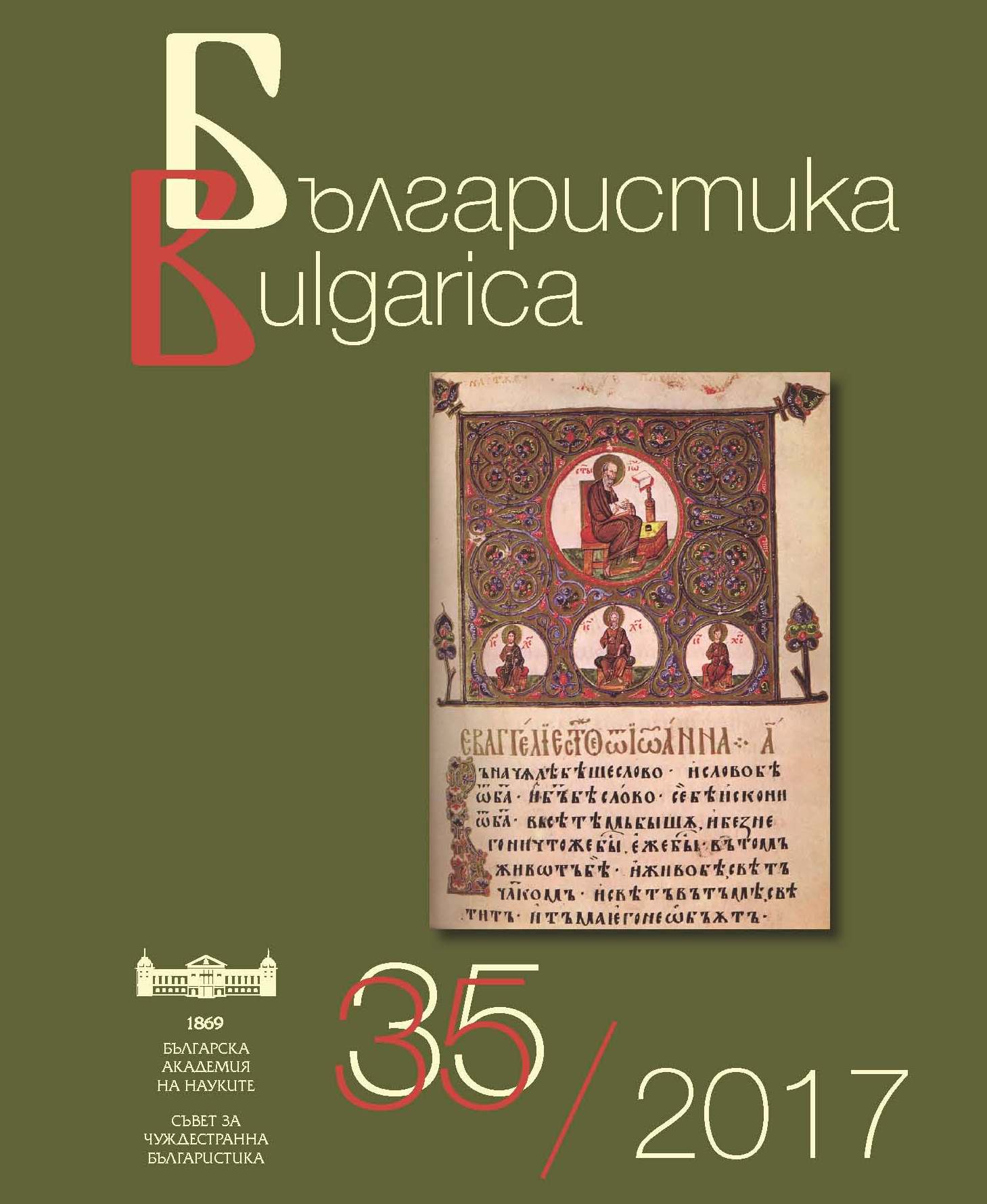
We kindly inform you that, as long as the subject affiliation of our 300.000+ articles is in progress, you might get unsufficient or no results on your third level or second level search. In this case, please broaden your search criteria.



The author examines the Bulgarian equivalents of the Hungarian greetings and addresses as found in Mikszáth Kálmán’s four novels translated into Bulgarian after 1950. She arrives to the conclusion that, due to the historical discrepancy of the social structure of the two nations, Bulgarian lacks the terms necessary for the accurate translation of the Hungarian titles and addresses.
More...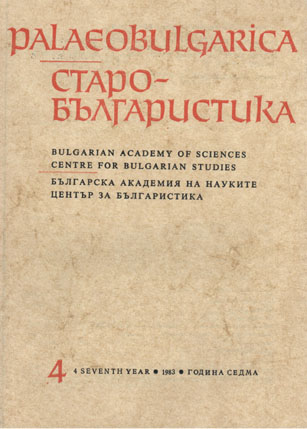

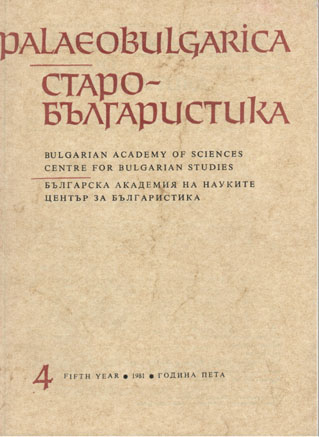

This article is devoted to the study of the "myth of sacrifice" in a wide historical, cultural and mythological discourse, on the actual linguistic material of the texts of the Russian historical novel and Bulgarian literature of the 19th century. This approach provides an opportunity to identify the points of contact and intersection of the mythopoetics of individual national literary models in the context of the historical contact of cultures. Within the framework of precisely these parameters, we came to the consideration of the Russian historical novellas ’’About the grandeur of the reigning great city of Moscow, which will be conceived first’’ (XVII c.) and ’’Tales of the murder of Daniel Suzdal and the beginning of Moscow’’ (XVII c.), ’’The Tale of Tver’’ (XVII century) and the poem ’’The Source of the Belonogaya’’ (XIX c.), the founder of the Bulgarian realistic poetry Petko Slaveikov in the context of intertextual relations. The focus of our study also includes some definitions, which in our opinion are important from the point of view of the genealogy of "sacrifice" and "zamurovyvaniya" in the construction of a new city or new buildings. In the course of the work it was established that, because of the stratification of the semantic meanings of "sacrifice", "immolation" in the cultural-historical diachronic plan, the texts containing the above motives function in different contexts and cause different reflections inherent in each separate cultural. Within this framework, it was also established that "sacrifice" and "immolation" in the construction of a new city or new buildings is a rooted strategy of mythological thinking "in the spiritual mentality of both Russian and South Slavic peoples.
More...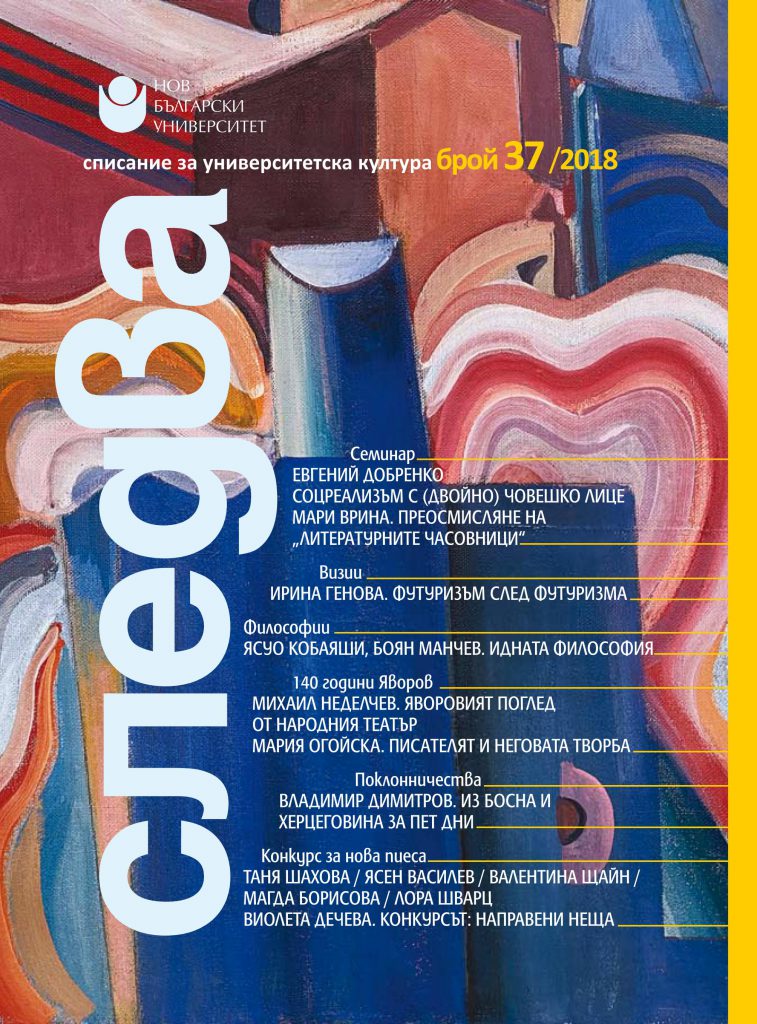

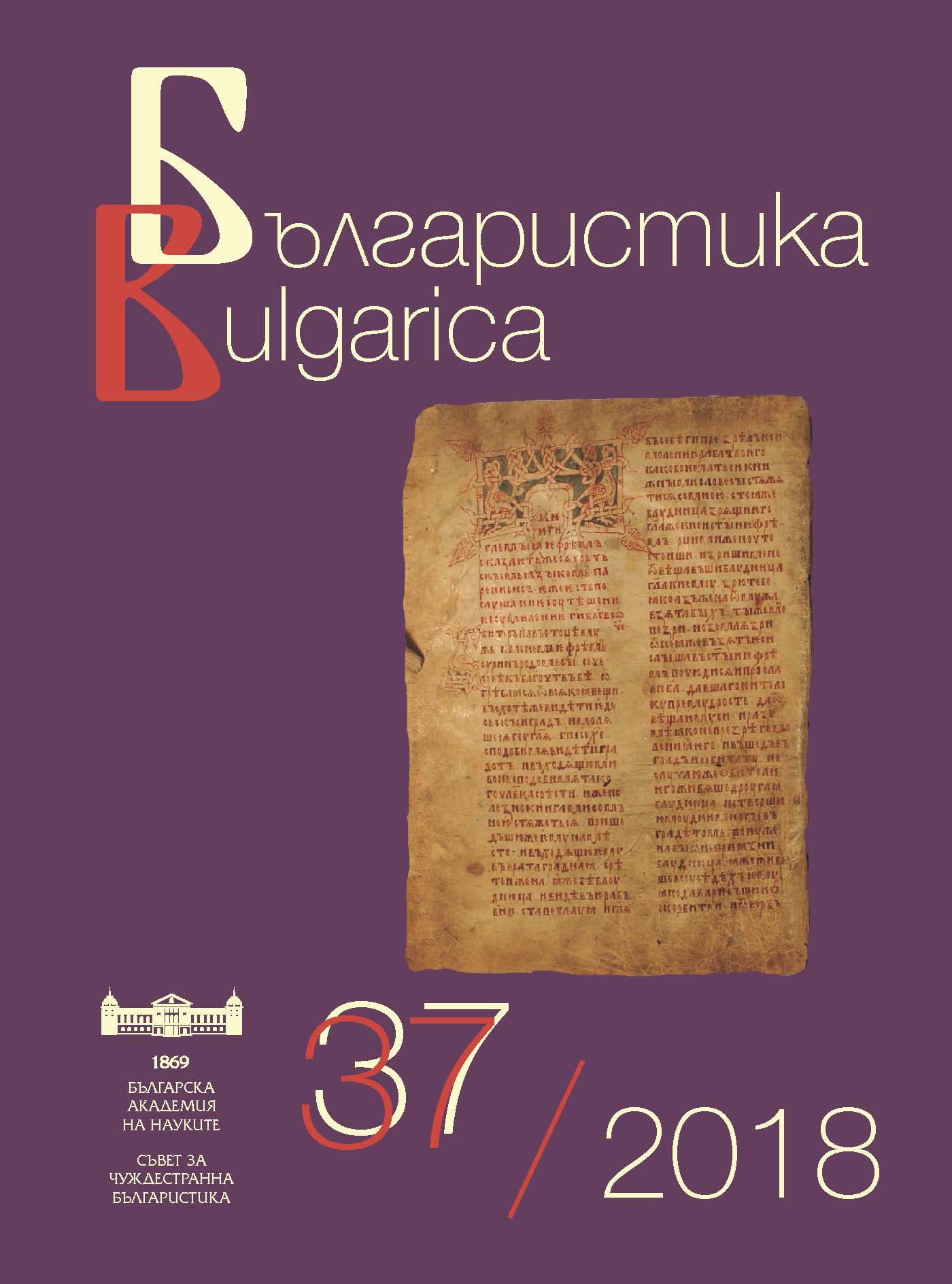
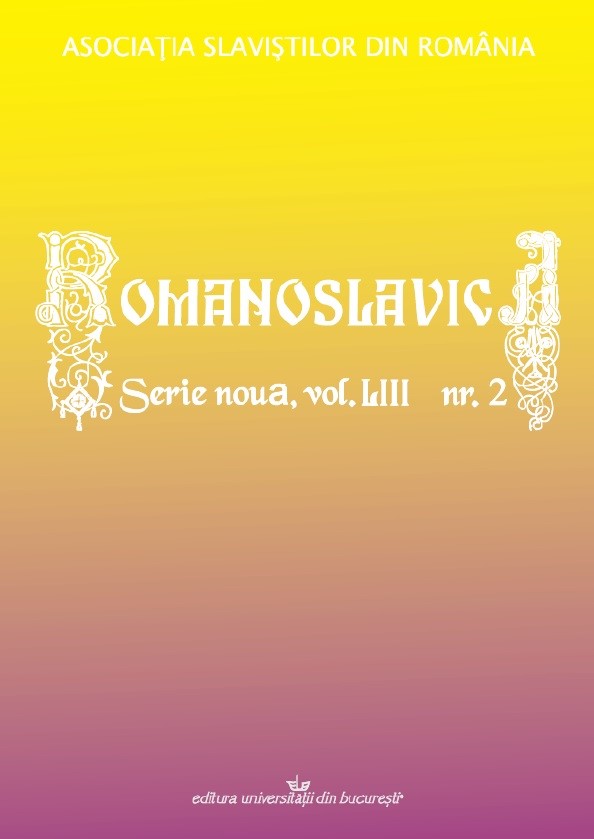
Although I am currently working on a doctoral thesis about the postmodern Bulgarian novel, in the following pages I will talk about the poets of the 1980s, because they were the first to call for a change in the Bulgarian literature and brought postmodernism to Bulgaria. Although in the 1980s Bulgarian postmodernism exists in a narrow, university circle and remains largely in its theoretical phase, in the next decades it evolved and decisively influenced both poetry and novel.
More...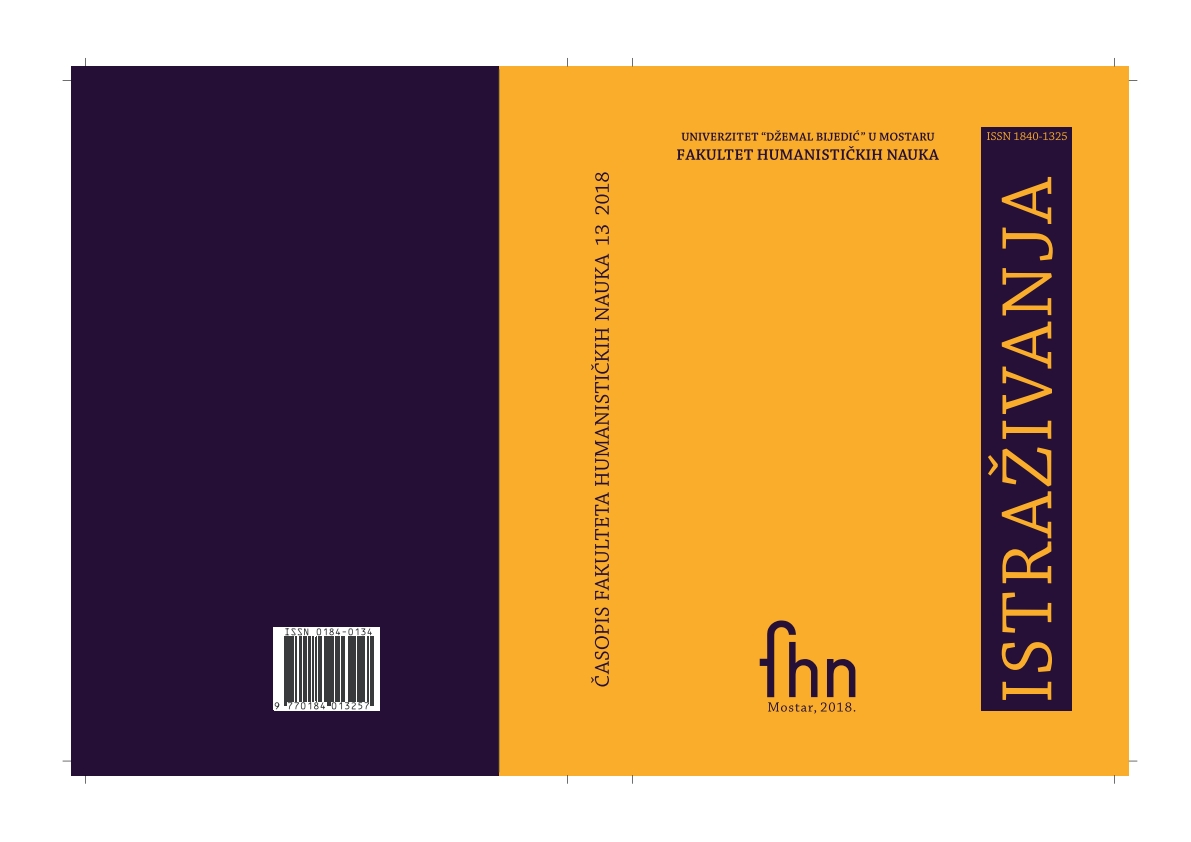
The present paper reveals and presents some linguistic and stylistic features in the oral poetry of Bosniaks, with a special focus on the sevdalinka. The analyses presented in this paper were inspired by the collection of sevdalinkas from the Anthology of Bosniak Oral Lyric Poetry. The analyses have been conducted on the phonological-phonetic, morphological, syntactic, and semantic level. The elicited stylomes have been classified according to a set of criteria and with the aim of elaborating their value and function in the sevdalinka. The main features of the sevdalinka are its folk elements – it is raised by people, and lives with them. Therefore, it is expected that the sevdalinka genuinely reflects the ambience of its people – not only spiritual, material, or social, but also the linguistic one. The language of the sevdalinka is a folk language, viz. the language of the period in which it was emerging. However, observed from a contemporary linguistic perspective, this language is an archaic expression embedding highly valuable stylistic features.
More...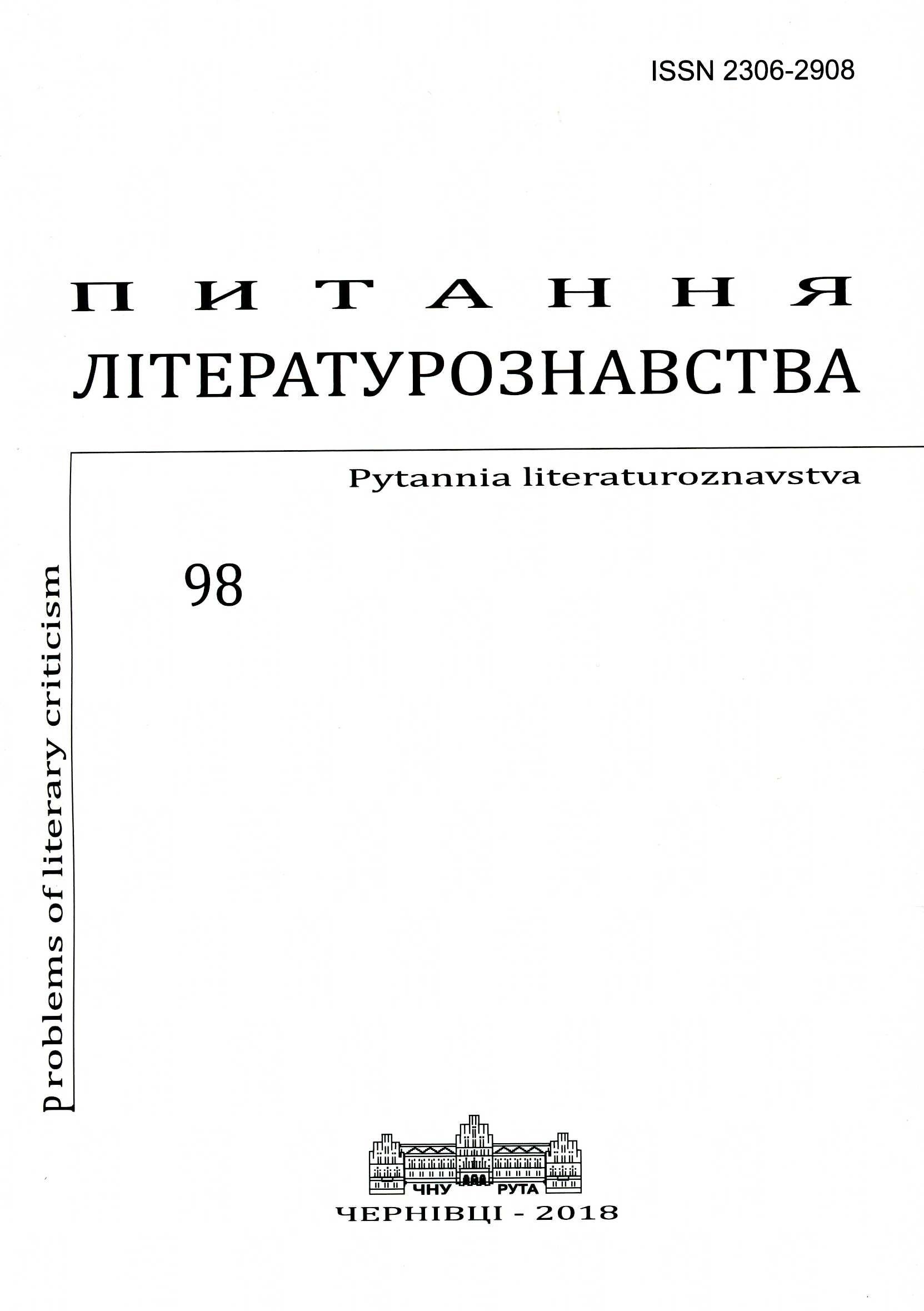
The main problem of researching the semantics of free verse and its translations is that every literary critic is free to look at this intricate genre, choosing one’s own set of tropes and figures to interpret it in written form. These facts were considered in this study of original Ukrainian free verse works and their interpretations, regarding the specific treats of languages to use. The anthology Вільний вітер. Волен вятър published in Kharkiv in 2017 became a material for this research. This issue makes a good opportunity for one reader to get acquainted with Bulgarian culture, and for another to actualize their knowledge about this country on Black Sea coast. The 20th century free verse writing represents quite active and flexible use of natural philosophical imagery in the artistic texture of the poems. These are different functions for it to fulfill (from decorating the lyrical narration up to expression of an essence of the work), stylistic means, and formation of the new connotations on the base of traditional meanings. Studying the interpretations of traditional genres and their poetics in compositional and lingual dimensions of both Ukrainian and Bulgarian free verses (those included into Вільний вітер) allowed seeing the fact: the more the author gets into the internal world of the character and one’s relationships with nature, the wider becomes the circle of meanings for the cultural conceit, image, and symbol. Furthermore, the larger research field gets opened for comparison of aforesaid meanings in various languages, not only Ukrainian and Bulgarian.
More...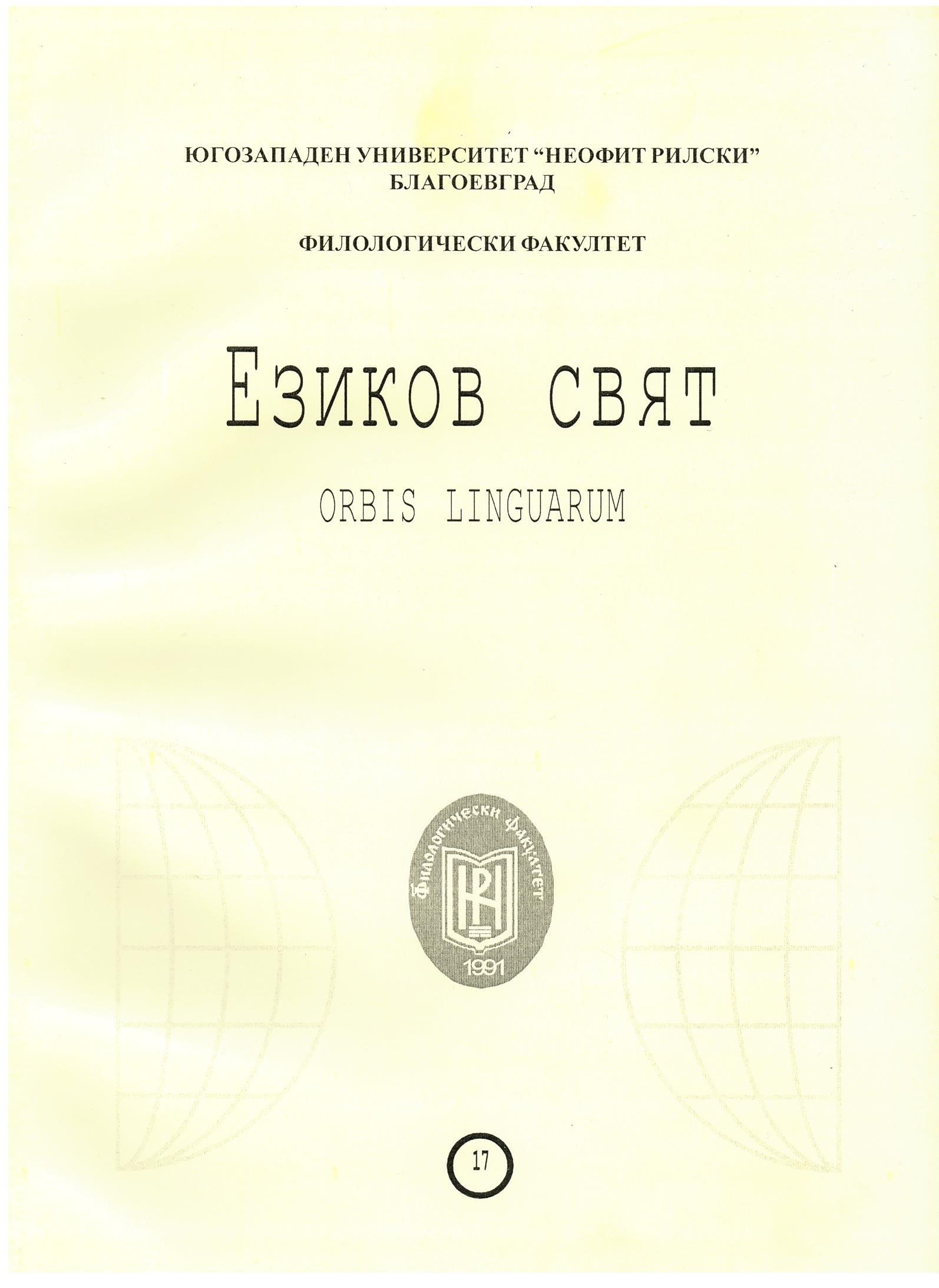
Тhe proposed article reviews the link between writing and personality by emphasizing GeorgiBenkovski’s attitude to several letters while being the main leader during the 1876 April Uprising.For this purpose it begins with the peculiarity of Benkovski’s writing the grapheme „и“ which is described in the book „Notes on the Bulgarian Uprisings“ by Zahari Stoyanov. The book outlines a parodic contrast: on the one hand, Benkovski has determination and a powerful voice that affirms him as the main leader of the uprising. On the other hand, he is powerless as he writes, something that Zahari Stoyanov masterfully suggests without presenting any text from Benkovski’s letters, but just the way he writes the grapheme „и“ in them. Benkovski seems to fetishize the letters of the illiterate people, but criticizes the grammatically correct letters in beautiful handwriting because he thinks that they hide the truth. The article reveals these acts of Benkovski from two perspectives. First, according to the „Notes...“ Benkovski makes the new Bulgarian history with his transgressive voice which he uses in the fight for freedom and the way he becomes mute after the defeat of the uprising. Second, it shows that under certain circumstances the handwriting of Benkovski can be used to identify his visual image which is disputed in Bulgaria.
More...
The name of the Italian novelist Matilde Serao is almost unknown to the modern Bulgarian reader, although her presence in the media was very active and influential a century ago. For a 30-year period (the 1990s and the first two decades of the 20th century) the Bulgarian reader got acquainted with eighteen of her novels and short stories. The translations of Serao set the beginning of the reception of the Italian women writings, which was completed later with authors like Ada Negri, Neera, and Grazia Deledda. Mathilde Serao is a unique representative of the Italian cultural group from the beginning of the 20th century. She epitomizes the perfect combination of the role of a committed mother and wife with the one of an excellent professional. Serao is impressive not only with her writing talent, but also with her enormous work capacity, management skills and the gift of a modern journalist. The Bulgarian perception of the Italian writer is in accordance with the cultural needs of the time, especially in a moment when the discussion about women writings appeared in the media. The main topics through which the Italian novelist is presented on the Bulgarian literary scene are love, maternity, poverty and school life. In the works of Serao, the central character is a portrayal of the woman in her detailed varieties of everyday roles and social images. The wide range of the female sensuality is examined and illustrated with a deep psychological understanding and care. In her works, the solidarity of the woman and the need of the man’s approval and acknowledgment coexist in a very interesting way.
More...
The article is dedicated to the problem of intermediality in the works of the Bulgarian writer of the second half of the twentieth century Pavel Vezhinov. The phenomenon of intermediality as a form of transgression outlines the integrating nature in the development of the contemporary arts and is challenging for literature. The aim of the article is to examine the variations of the interaction of verbal and visual (painting, coloristic and architectural models), verbal and audio (music that exists in the novel, and music that is a result of inspiration) and verbal and synthetic (cinema and theater) kinds of art. The object of the research are the texts written by Pavel Vezhinov - "The Blue Butterflies", "Barrier", "Night with the White Horses". The study reveals a terminology system that is used to analyze the phenomenon of intermediality, points out the works of the researchers and literary schools which develop the theoretical and practical approaches to intermediality. The analysis of the descriptions of visual arts enables the studying of picture-ekphrasis - the description and existence of the picture as a literary image, urboekphrasis – the city as the hero of the work, oikoekphrasis – a description of buildings as architectural artifacts. Musical ekphrasis is considered as a musical image existing in the text, but needs another participant / participants to voice it. It is revealed at several levels: the heroes are creators of music; music is a kind of accompaniment to their lives; Vezhinov's works are an inspiration for writing other musical pieces. To sum up, the variants of ekphrasis (picture-ekphrasis, urboekphrasis, oikoekphrasis, musical ekphrasis) and the interaction of verbal and audio, verbal and visual, verbal and synthetic arts in the works of Pavel Vezhinov prove to be very fruitful for the investigation of intermediality.
More...
The research activities of two well-known Italian scholars in Slavistics and Bulgaristics, who have defined their field of scientific research since an early academic age, are briefly studied. Throughout their scientific studies, Mario Capaldo and Giuseppe Dell'Agata relied on the secure basis of the original texts from the archive and handwritten Slavonic collections, and as early as the beginning of their career they emerged as excellent linguists in the field of Paleoslavonic studies and Old-Bulgarian studies, gradually expanding their scientific themes. Mario Capaldo, with the method of textology and comparativism, deepened the studies of the medieval Slavonic world and the dynamics of his literary and cultural relations with the neighboring lands and cultures - Greek and Latin German. He also achieved remarkable results in studying the works of the Old Bulgarian representatives of the Preslav Literary School of the IX-X century, discovering the Greek models of translated literature, brilliantly performed in this center. Giuseppe Dell'Agata subsequently manifested himself in the later period of the XVII-XIX centuries. In his works, he discussed the issue of the literary Bulgarian language in the perspective of the Balkan area, the peculiarities of the Church-Slavonic language, he also studied the Greek-Bulgarian parallels in the language of the damascenes, analyzed the works and sources of the brightest literary representatives of the early and mature Bulgarian Revival: Paisiy Hilendarski and Sofroniy Vrachanski. In the recent years, his translations into Italian of some of the most prominent contemporary Bulgarian fiction writers have helped a lot to popularize modern Bulgarian literature in Italy. With their overall scientific and teaching activities, the two Italian scholars in Slavistics and Bulgaristics have undoubtedly contributed to the development of Slavonic and Bulgarian studies not only in Italy, but also in an international context, as well as to the expansion of Italian-Bulgarian scientific and cultural relations
More...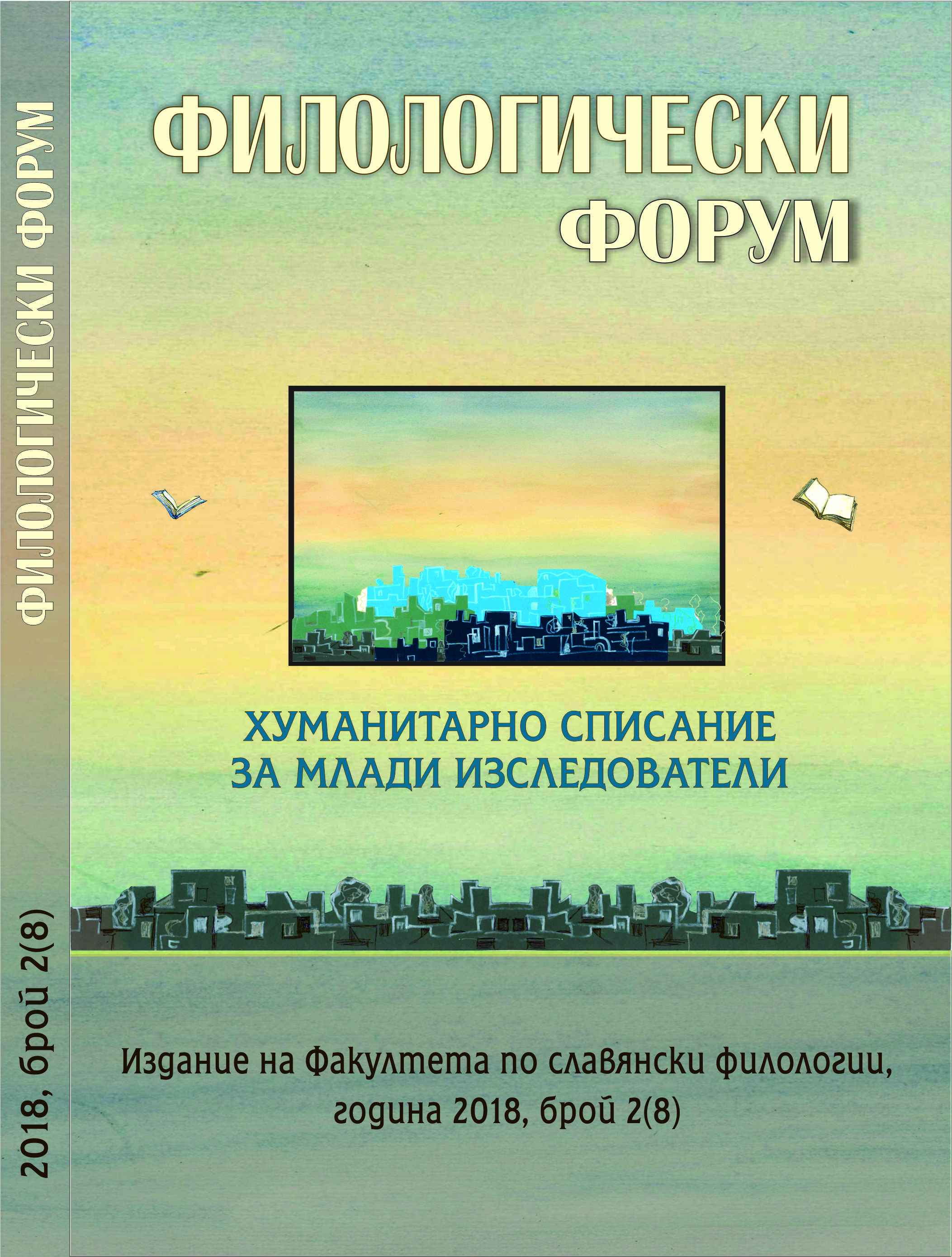
This article suggests an attempt to analyze Hristo Botev’s dialogues in the Tapan (1869-1870), said dialogues functioning as acute social and political satire levied against the realities of his intensive and controversial timew. The images of Bulgarian intellectuals, wealthy men and clergy, who, although they were compatriots, had different notions about their homeland, are also investigated.
More...